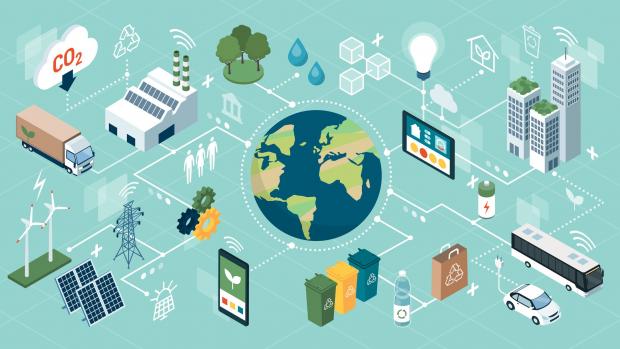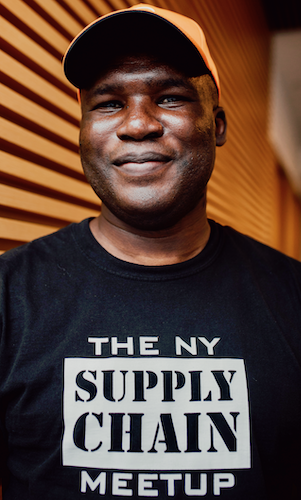A supply chain expert weighs in on the current crisis and maps out a plan for the future

Well before hand sanitizer became impossible to find and store shelves across the country were emptied of toilet paper, Brian Aoaeh, who teaches in NYU Tandon’s Department of Technology Management and Innovation, was pointing out problems in our global supply chains.
 Aoaeh (pronounced AH-weh) — the co-founder of both the grassroots-driven The Worldwide Supply Chain Federation and REFASHIOND Ventures, an initiative aimed at funding innovations in the field — explains that all human activity is driven by supply chains, which experts have defined as networks of connected and interdependent organizations mutually and cooperatively working together to control, manage, and improve the flow of materials and information from suppliers to end users. When they work well (for example, when you can stroll into any neighborhood drugstore and readily purchase a bottle of hand sanitizer) they are largely invisible to the average person; when they break down, chaos can ensue. Most of the time, those breakdowns occur on a more localized level: a flood in the Midwest will affect that region or a tsunami in Japan has national consequences. A global pandemic, however, has more far-reaching and devastating costs, as even the average consumer now knows.
Aoaeh (pronounced AH-weh) — the co-founder of both the grassroots-driven The Worldwide Supply Chain Federation and REFASHIOND Ventures, an initiative aimed at funding innovations in the field — explains that all human activity is driven by supply chains, which experts have defined as networks of connected and interdependent organizations mutually and cooperatively working together to control, manage, and improve the flow of materials and information from suppliers to end users. When they work well (for example, when you can stroll into any neighborhood drugstore and readily purchase a bottle of hand sanitizer) they are largely invisible to the average person; when they break down, chaos can ensue. Most of the time, those breakdowns occur on a more localized level: a flood in the Midwest will affect that region or a tsunami in Japan has national consequences. A global pandemic, however, has more far-reaching and devastating costs, as even the average consumer now knows.
The COVID-19 situation, Aoaeh says, calls for a coordinated, large-scale response marked by as little red tape as possible and cooperation between international, federal, state, and city governments, and between private sector and public sector organizations. “Collaboration is powerful,” he stresses. “My vision is to combine the on-the-ground knowledge of grassroots organizations like The Worldwide Supply Chain Federation, whose members may, for example, know of unexplored sources for in-demand items such as protective masks, with the financial might of large corporations or governments.”
Addressing the issue must continue, even after the current crisis passes. “All supply chains interact with one another in ways that we cannot always predict or control, as the pandemic proves, and going forward, we can’t afford to make supply chain resiliency an afterthought,” Aoaeh asserts. The solution, as he wrote in an open letter to the recently formed Supply Chain Caucus of the U.S. House of Representatives, is to focus now on building supply chains capable of withstanding the challenges the world will contend with in the years ahead.
“Events like the novel coronavirus and other natural or man-made disruptions to global supply chains are likely to become more common in the future as the world’s population continues to grow, straining resources and the natural environment,” he predicts, “so it’s vital that our supply chains be sustainable; designed with an eye towards existing social, environmental and economic systems; and optimized for resilience, with a balance between centralization and decentralization.”
In the meantime, he advises everyone to think of themselves as a vital link in the supply chain. “When you hoard goods we all need, you’re disrupting the chain,” he cautions. “There’s no need to purchase every package of disposable gloves on the shelf. Make sure your neighbors have access to what they need too and allow things to stabilize.”
To learn more about the importance of supply chains and their impact, read The World Is a Supply Chain, by Aoaeh and his co-founder, Lisa Morales-Hellebo.




